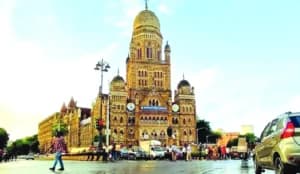In a significant ruling that stirred discussion across the education and defence communities, the Gauhati High Court on Thursday (October 23, 2025) upheld the Nagaland government’s decision to deny an MBBS seat under the Central Pool quota to a serving Army officer’s daughter. The division bench clarified that wards of defence personnel cannot claim seats under both the Defence and State-deficient quotas.
Background
The case arose when Vatsala Panghal, daughter of a Colonel posted with the 1 Nagaland Battalion NCC at Kohima, applied for an MBBS seat under Nagaland’s Central Pool quota. Despite scoring above the cut-off, her name did not appear in the provisional list. Feeling unfairly excluded, she challenged a 2021 state notification that restricted eligibility for the quota to permanent residents and certain Central Government employees posted in Nagaland.
The Single Judge earlier found the notification “arbitrary” and struck it down, holding that it contradicted the Central Government’s 2025 guidelines for seat allocation. The Nagaland government appealed that order before the division bench comprising Chief Justice Ashutosh Kumar and Justice Arun Dev Choudhury.
Court’s Observations
The bench delved deeply into the policy documents and a letter from the Union Health Ministry dated September 17, 2025, which clarified that separate MBBS/BDS quotas exist - one for defence personnel and another for States with inadequate medical infrastructure.
“The two quotas,” the bench observed, “are mutually independent and non-interchangeable. A defence personnel cannot be treated as a Central Government employee for the purpose of availing State-deficient quota seats.”
The Court also pointed out that 42 MBBS and 3 BDS seats were already earmarked for wards of defence personnel under the Central Pool, and the petitioner had not qualified under that category due to lower marks.
“The law disfavours dual benefit under two different welfare schemes emanating from the same source,” the judges remarked, emphasizing that permitting such overlap would distort the scheme’s intent.
They further noted that the Central Pool policy serves distinct objectives - national service recognition (for defence) and regional equity (for deficient states). The bench found this classification to have a “rational nexus” with the purpose of fair seat distribution, rejecting claims of discrimination or violation of Article 14.
Decision
Concluding the matter, the Court set aside the Single Judge’s order and dismissed the writ petitions filed by the petitioner. “The guidelines themselves disqualify the petitioner from claiming a seat under Nagaland’s deficient-state quota,” the bench ruled, upholding the state’s right to maintain separate eligibility criteria.
The verdict reinforces the principle that while the nation honours its defence personnel through dedicated educational benefits, those benefits cannot be extended into parallel civilian quotas designed for local students of medically underrepresented regions.
Case: State of Nagaland & Ors. vs. Vatsala Panghal & Anr.
Case No.: WA/260/2025
Appellants: State of Nagaland and others (represented by Addl. Advocate General Ms. V. Suokhrie)
Respondents:
- Vatsala Panghal (Daughter of an Army Colonel, 1 Nagaland Battalion NCC, Kohima)
- Union of India (Ministry of Health and Family Welfare)
Date of Judgment: October 23, 2025














